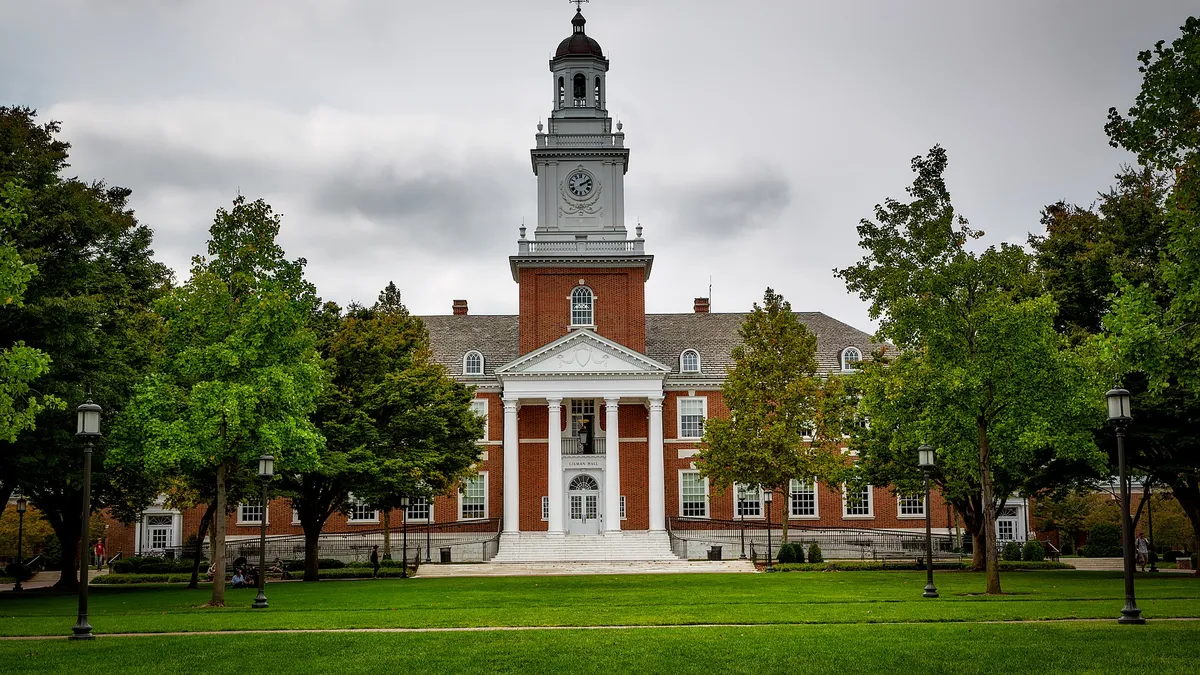Dive Brief:
- Michael Bloomberg, the former mayor of New York, plans to give his alma mater Johns Hopkins University $1.8 billion to increase the level of need-based aid it provides. His pledge marks the single largest private donation in higher education, The Washington Post reported.
- An op-ed written by Bloomberg that appeared in The New York Times on Sunday said the donation's intent is to make the admissions process at the private Baltimore university "forever need-blind." Johns Hopkins will be able to use the donation to increase the amount of grant money for low-income students, eliminate loans as financial aid and supply relief to current students who have federal loans, according to The Post.
- The university will begin advertising that it will not consider applicants' financial circumstances and that it will meet whatever financial needs an admitted student has without including loans in the aid package.
Dive Insight:
Last year saw a record $43.6 billion in donations to higher education, up 6% from 2016 and driven by an increase in alumni giving. But few of those large donations have been given specifically to increase levels of need-based aid, with most instead focused on building new facilities, launching programs and supporting research.
In 2017, the two largest private donations were $600 million to support cancer research at Columbia University and $500 million to build a new hospital at the University of California, San Francisco, according to The Chronicle of Higher Education.
Yet the heads of major foundations told Education Dive last year that donors want to see colleges shrink racial attainment gaps and promote more equitable access to higher education. Bloomberg's $1.8 billion donation signals the growing movement behind the idea to make college affordable for everyone.
Colleges have been leaning more on donations to achieve this goal. In August, the New York University School of Medicine announced it would fund all students' tuition by raising $600 million. At the time of the announcement, it had raised $450 million with roughly $100 million from Home Depot founder Kenneth Langone. Likewise, St. John's College, a small liberal arts institution with campuses in Maryland and New Mexico, slashed its listed tuition price by $17,000 and plans to make up the lost revenue through increased fundraising.
Additionally, due in large part to colleges increasing their scholarships and aid, the real cost of college has started to level off.
Still, many families are priced out of their preferred institutions or college entirely. The value needed to finance a year of education at a four-year college is 15%, on average, of a high-income student's annual family earnings while it is the same as or more than a low-income student's family income, according to a recent report by the Institute for Higher Education Policy.
To improve college affordability, the report recommends institutions prioritize their spending on programs and services that increase access and better student outcomes instead of spending more on athletics programs or auxiliary facilities and services. For colleges turning a profit or benefiting from large endowments, the researchers suggest they keep prices low for needy students by allocating a larger share of resources toward them.











